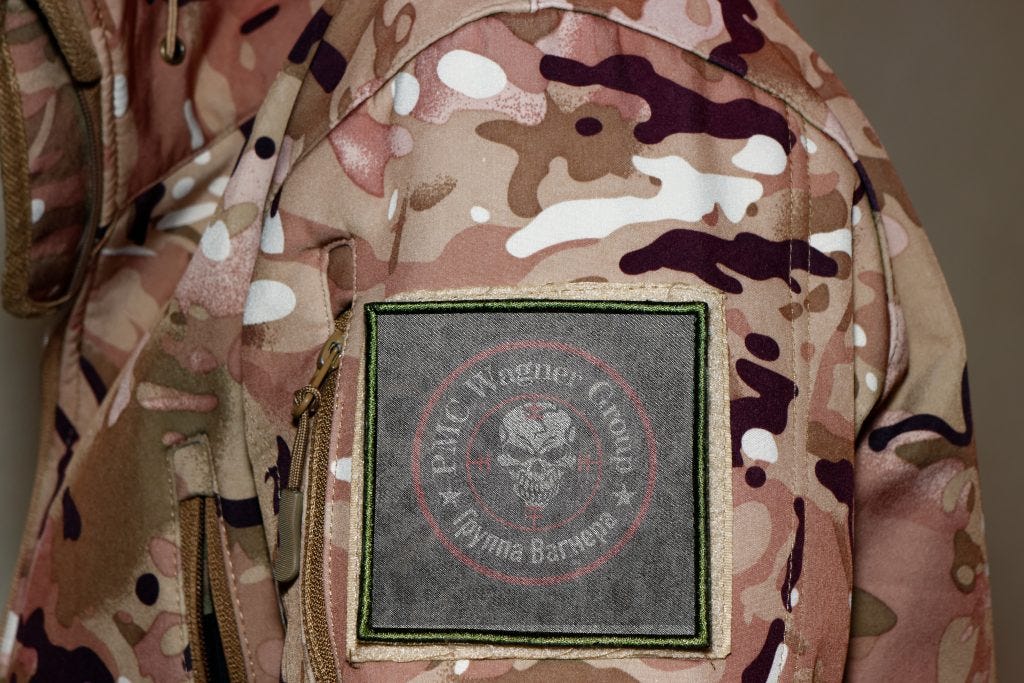What does Wagner’s strange mutiny tell us about Putin’s grip on power?
Here are four observations
The war in Ukraine has many unexpected shifts, and last weekend’s coup, revolt, mutiny (nobody is sure what to call it) was perhaps unprecedented in modern Russian history.
Yevgeny Prigozhin, the murky leader of the Kremlin-backed private military force called the Wagner Group, is hailed as a hero amongst Russians for his bloody capture of the Ukrainian city of Bakhmut. He has also used social media to launch fiery criticisms of Russia's Defence Minister Sergei Shoigu and the regular Russian forces.
But for reasons and motives that remain unclear, he made an about-face in Ukraine and sent his thousands of fighters toward Moscow and captured the Russian city of Rostov-on-Don, which plays a key role in coordinating and supplying Russian forces occupying Ukraine.
Fighting broke out between Wagner and Russian troops, reportedly resulting in more than a dozen Russian airmen killed when their aircraft was shot down by Wagner forces.
Within 36 hours the whole dramatic episode came to an abrupt end. Apparently not being able to achieve his original aims, Prigozhin and his troops accepted an offer of refuge in the neighbouring country of Belarus.
So, what does this odd episode tell us about Putin’s power?
Putin’s anti-coup strategy seems to work
First, many have ascribed Putin’s political longevity to his “coup-proofing” method of setting up competition amongst his power base, so no single faction (say, the military) can rely upon the support of the others to topple the president. Yevgeny Prigozhin’s aborted power play might demonstrate that Putin’s strategy worked as planned because Prigozhin seemed to have no active support from others in Putin’s inner circle.
Putin’s pardon of Wagner forces show pragmatism
Second, Putin’s harsh admonishment of Yevgeny Prigozhin’s actions on nation-wide TV, followed by the president’s surprisingly forgiving banishment of his once-close associate to neighbouring Belarus, defies his typical characterization by Western media as an unreasonable “mad man” bent on crushing any opposition.
Why didn’t Putin send Prigozhin to the gallows for treason? Those media critics now declare Putin’s pardoning of Wagner’s leader as a sign of weakness.
But Putin is a survivor, and apparently he will choose a pragmatic course of action to preserve his position and influence, even if it contradicts his political opponents who would rather he confirm their depiction of him as an ideologically-driven authoritarian.
Putin’s challengers are hawks, not doves
Third, the entire episode reminds one of the saying, “Be careful what you wish for.”
Supporters of Ukraine rightfully pin the blame on Putin for the illegal, brutal invasion last year. They openly hope for a change in leadership in Moscow, by any means, that will make Putin disappear (or even better, put on trial in the Hague for war crimes).
But who might be the alternative? If the erratic, criminal self-made war lord Yevgeny Prigozhin is the most likely contender, a change in Russian leadership might make the invasion and occupation much worse – not better.
Putin is surrounded hawks who want to prosecute the war more forcefully – a worrisome fact well-known, but rarely admitted publicly, by Western intelligence agencies.
What does it say about the prospect of peace negotiations?
Finally, does the failed coup and Putin’s response tell us anything about the potential end of the war in Ukraine? Melvin Goodman is a former CIA analyst and currently a a professor of government at Johns Hopkins University. He says this:
“The fact that Putin refused to prosecute Prigozhin, and is willing to allow his mercenary forces to join the Russian army points to the Russian leader’s hopes to avoid additional internal conflict. It’s hard to know what Putin is thinking, but his willingness to compromise with Prigozhin as well as the fateful domestic challenge that he faces could make the Russian leader willing to entertain the possibility of negotiation. His dreams of restoring the Russian empire have been shattered.”
(Cover: Moscow Russia - June 24, 2023: Red Square and the surrounding area during the Yevgeny Prigozhin riot. Closed red square during the uprising. Via Shutterstock)


